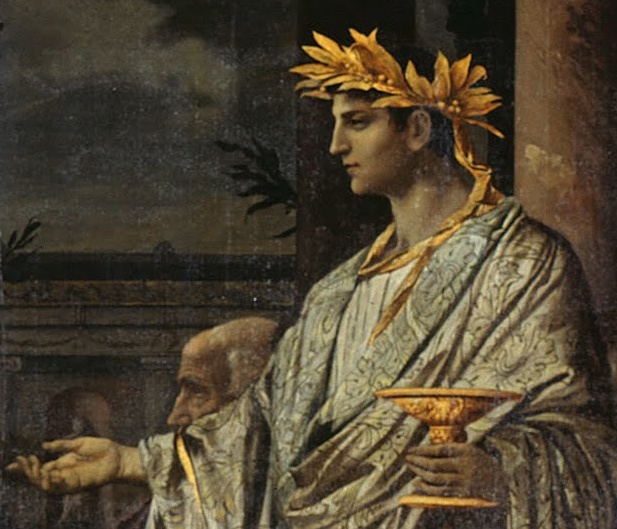AGATHON, Greek dramatist, born (d: 400); Agathon, who was the very first dramatist to write on subjects and characters of his own invention, rather than drawing on mythology, was an Athenian tragic poet and friend of Euripides and Plato. He is best known for being mentioned by Aristophanes in his Thesmophoriazusae and for his appearance in Plato’s Symposium, which describes the banquet given to celebrate his obtaining a prize for his first tragedy at the Lenaia in 416.
He was the long-term (10-15 years) beloved of Pausanias, who also appears in the Symposium and Protagoras. Together with Pausanias he later moved to the court of Archelaus, king of Macedon, who was recruiting playwrights; it is here that he probably died around 402 BC.
The picture of Agathon that has survived the centuries is of an exceptionally effeminate man with plucked eyebrows, made-up face, mincing walk and womanish clothing. This, however, is the literary invention of Aristophanes in Thesmophoriazusae, a play that has been freely translated as “Ladies’ Day” because it is, in part, about a particular Athenian festival sacred to women only and to which men were not admitted.
In the play Agathon is asked to crash the event because he is the only man in Athens who could be admitted without having to wear a disguise. For his grand entrance, Agathon is rolled out in his bed looking very much like a tarted-up old queen. That his audience laughed suggests that Aristophanes might have been merely exaggerating an accepted truth.
